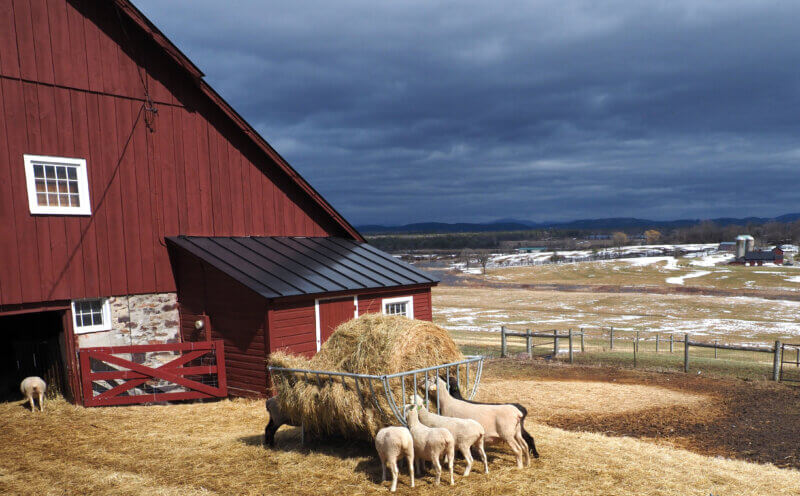Proposed small-farm grant cut in legislative process
A bill to help small farmers diversify their products with a new grant program crossed over from the House to the Senate, but not without a significant cut in the money behind it.
The House Committee on Agriculture, Food Resiliency, and Forestry originally sought for a $500,000 appropriation for the program, which would be created through H.205. The committee wanted $250,000 of that to be in regular, general funding — or base funds — and the other half as a one-time appropriation.

But before the bill went to the Senate, the House Committee on Appropriations changed the funding to a one-time appropriation of $350,000.
Each grant would still be capped at $15,000, but the number of recipients could be affected by the reduction in funding for the program. Under the original plan, if all recipients received the max of $15,000, 33 farmers would receive grants. With the new version, that figure would go down to 22 farmers.
“Our concern was, putting it into base (funds), before the program had been piloted, it didn’t make sense to the majority in the room,” said Rep. Tristan Toleno, D-Brattleboro, in an interview.
Committee members also cited similar programs already in place, such as the agriculture agency’s Working Lands Enterprise Initiative, in describing their hesitancy to fully fund the new program.
The working lands program provides business grants to farms, but those grants are typically for larger sums of money and highly competitive, which presents challenges for small farmers.
“As we know, the majority of grants are very oversubscribed, and likely this one would be as well,” said Rep. Heather Surprenant, D-Banard, during a meeting with the Senate Committee on Agriculture in March.
One of the goals of the new bill is to provide a less competitive avenue for small farms to access aid. Surprenant explained in that committee meeting that many other grant programs include financial match barriers and hyper-specific eligibility criteria. The bill’s program would forgo a financial match and be open to all small farmers in any sector of agriculture.
“This program is just a small piece targeted at one particular problem, which is small producers who are having trouble diversifying, and making sure they feel they can meaningfully access these funds because Working Lands is so competitive that a lot of small farmers are opting out of putting in applications,” said Toleno in an appropriations committee meeting in March.
Toleno also discussed in an interview how the committee has made similar decisions for other new programs this session to allow the Legislature to test-run initiatives before dedicating a larger sum of money to them. Toleno noted that legislators “softened the blow of cutting it” by raising the one-time fund from $250,000 to $350,000 to give the program a proper test run.
“Let’s get started, see what the impact is and then address it in future years,” he said.
(Community News Service works in a partnership with The Charlotte News and other local media outlets to provide opportunities to University of Vermont students.)
